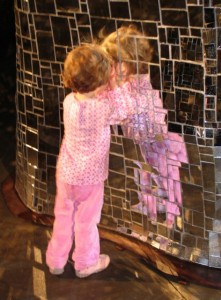“Hello?” He said. “Hello,” she said.
The other day I was riding a bus in San Francisco. I am a tourist, but I try to fit in and belong in the “big city.” To do so, I have become hyper-aware of the rules and I try to follow them, all. Like many public transit systems, younger riders are expected to make way for elder riders, when necessary. On the SF buses, this rule is posted everywhere, and every few stops there is an automated reminder that repeats over the speaker system. On this day, an elderly gentleman boarded the bus after me. He looked at me, and I froze. Although there was a seat available to my left and to my right, I moved over one seat to allow him to take the seat closest the door through which he was entering. I don’t know I did this exactly, I was trying to be nice and respectful, I suppose.
He took it as an invitation to start talking to me. He explained how the first time a young woman had done that was fifteen years ago and he yelled at her and wouldn’t take the seat. “These days,” he said, “I’ll take all the nice things people will do for me.” Aside from “oh,” “yes,” and “yeah” I wasn’t really able to say much for the ten minutes he talked to me (or was it at me?) until my stop. Finally, I broke in mid-sentence and wished him a good day as I hopped off the bus. The smell of his stale breath stayed with me for the two blocks I walked to my destination.
In her book Pyschoanalytic Diagnosis, Nancy McWilliams describes narcissists as, “People whose personalities are organized around maintaining their self-esteem by getting affirmation from outside themselves.”